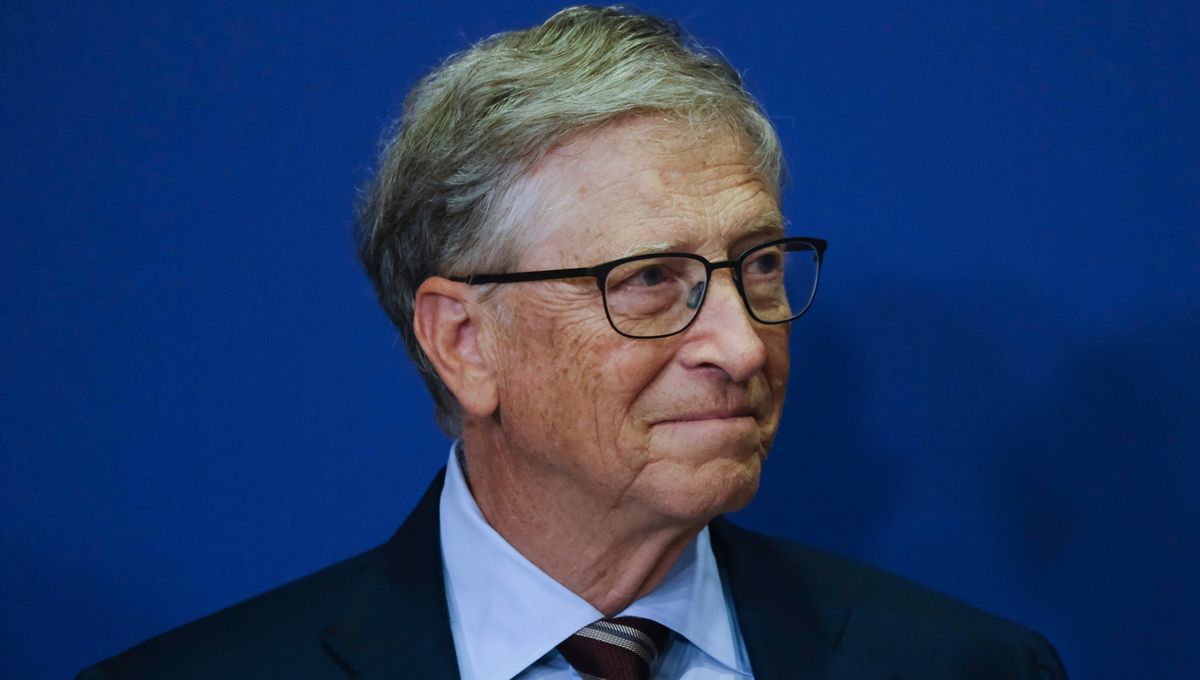
Microsoft founder and billionaire Bill Gates was on The Tonight Show with Jimmy Fallon in February and made some bold predictions for the future and the role that artificial intelligence (AI) might play in it. The comments have recently making the rounds online – and there are a lot of feelings surrounding them.
ADVERTISEMENT
Gates based his prediction on his experience of the changes he has witnessed in computing across his career. Computers were expensive and now they are not. It is his belief that this will be the case for AI as well. He did explain that there is a lot of uncertainty, but his optimism about AI is not shared by many across the world.
“The era that we’re just starting is that intelligence is rare. You know, a great doctor, a great teacher… And with AI over the next decade, that will become free. Commonplace, you know? Great medical advice, great tutoring. And it’s kind of profound because it solves all these specific problems, like we don’t have enough doctors or, you know, mental health professionals,” Gates told Fallon during the show.
Two pieces of criticism have been leveled at Gates beyond the insinuation that talented teachers and doctors are rare. The first one is that the need for more people in professions that are crucial for a successful society is structural. The lack of teachers, mental health professionals, doctors, and so on, reflects a lack of investment and support in those professions.
The second one is the fact that AI continues, in general, to be awful in those professions. Google’s AI chatbot, Gemini, has been placed on top of all search results, and it continues to deliver statements that are wrong. Medical machine learning algorithms have made great strides in predicting certain conditions, but they generally continue to be biased against women and people of color by missing diseases. Given that health inequalities like these already exist within medicine, the deployment of AI is likely to exacerbate them.
“[AI] brings with it kind of so much change. You know, what will jobs be like? Should we, you know, just work like 2 or 3 days a week? So I love the way it’ll drive innovation forward, but I think it’s a little bit unknown. Will we be able to shape it? And so, legitimately, people are like, ‘Wow, this is a bit scary.’ It’s completely new territory,” Gates continued.
ADVERTISEMENT
Fallon then asked, “Will we still need humans?”, to which Gates replied, “Not for most things.”
The idea of working less is something that most people would want. It has been shown many times that a four-day work week can deliver many benefits to the workers without reducing productivity for companies. In one UK-based pilot program that trialed this shorter week, the results were so good that 86 percent of companies that tried it decided to keep it.
The main criticism here is that many people, so far, have found no practical use for the current iteration of AI – basically, it is not making the day-to-day workload any better.
On top of that, AI is not being designed to replace boring or dangerous jobs. It is mostly being trained to perform creative tasks, like writing or making art – something that a human might do if they were working less. AI models have faced allegations of being trained using stolen art, while Facebook’s parent company Meta has been caught using pirated material to develop its AI programs.
ADVERTISEMENT
In the interview, Gates also mentioned how nebulous climate solutions might come in the coming years. And that is another looming black cloud over AI; currently, there is no alternative to their exorbitant use of water and alarming carbon footprint, with companies including Microsoft failing their climate goals in the pursuit of AI.
Predicting the future is always guesswork and those guesses are influenced by the would-be-Nostradamus’ inherent biases and worldview. AI is certainly shaping our world. If it’s for the better or worse, only time will tell.
Source Link: Bill Gates Predicts We Could Have A Two-Day Work Week By 2035, Thanks To AI